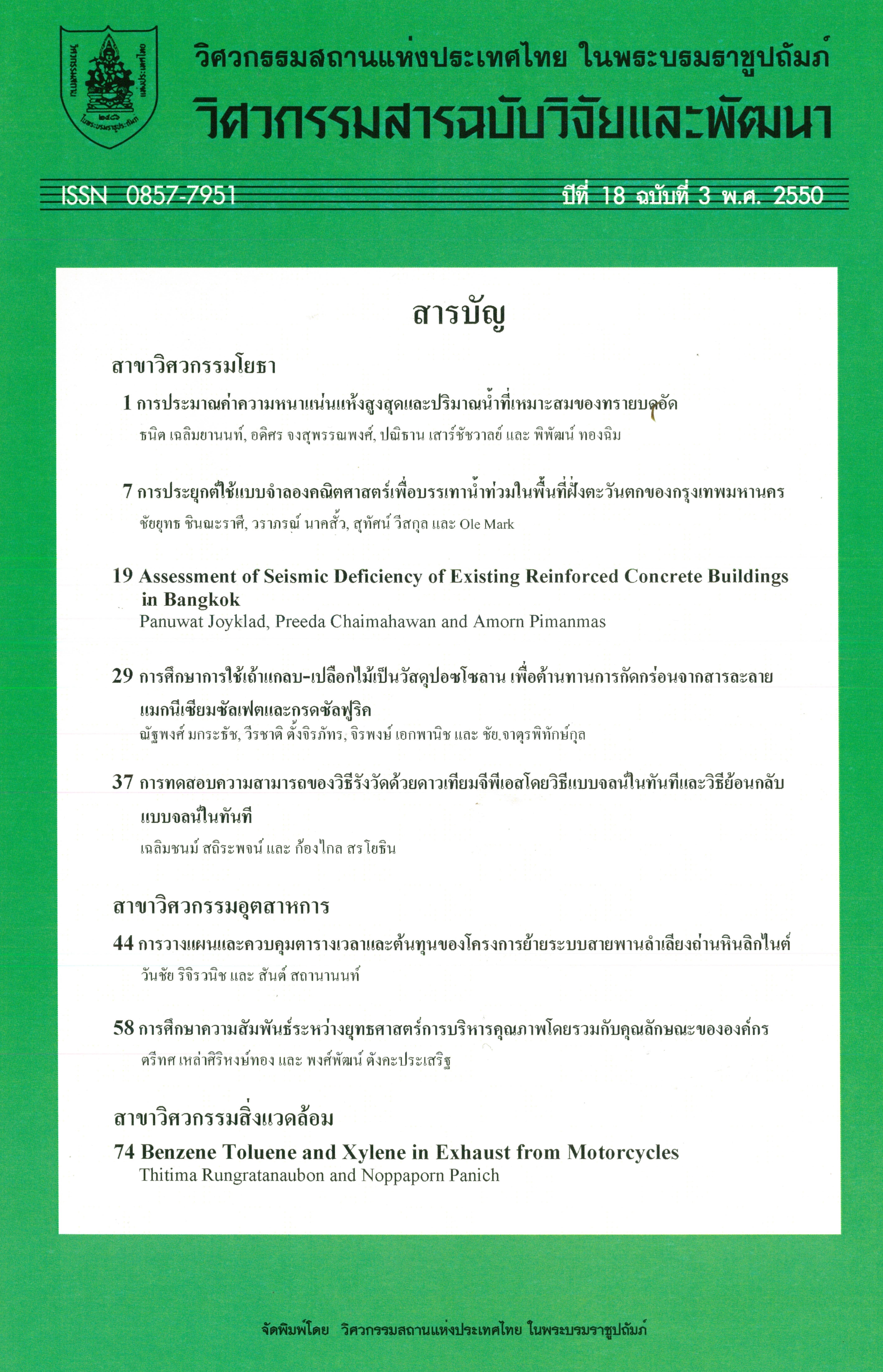การศึกษาการใช้เถ้าแกลบ-เปลือกไม้เป็นวัสดุปอซโซลาน เพื่อต้านทานการกัดกร่อน จากสารละลายแมกนีเซียมซัลเฟตและกรดซัลฟูริค
Main Article Content
Abstract
This research studies the utilization of rice husk-bark ash (RHBA) as a pozzolanic material to resist magnesium sulfate and sulfuric acid attacks. RHBA is a by-product obtained from biomass electric power plant and was improved the quality by grinding until the median particle sizes are 27.4 and 10.9 microns (G1R and G2R), respectively. RHBA with all finenesses were used to replace Portland cement type I at the ratios of 10, 20, 30 and 40% by weight of binder to cast mortars. The length change of mortar in 5% of magnesium sulfate solution and the weight loss of mortar due to 0.02% sulfuric acid solution (pH of 2.5) were investigated. The results revealed that original RHBA was not suitable to be used as a pozzolanic material. Although original RHBA could reduce the expansion of mortar bars, the compressive strength of mortars containing original RHBA were too low. For G1R and G2R, the expansions of mortar bars were lower than those of Portland cement type I and type V mortar bars at 360 days and tended to decrease with an increase of RHBA fineness. The weight loss of mortar due to sulfuric acid attack showed that the mortars mixed with G1R and G2R exhibited lower weight loss than that of Portland cement type I mortar. The finer particle of RHBA raised sulfuric acid resistance higher than the coarser one.
Article Details
The published articles are copyright of the Engineering Journal of Research and Development, The Engineering Institute of Thailand Under H.M. The King's Patronage (EIT).


